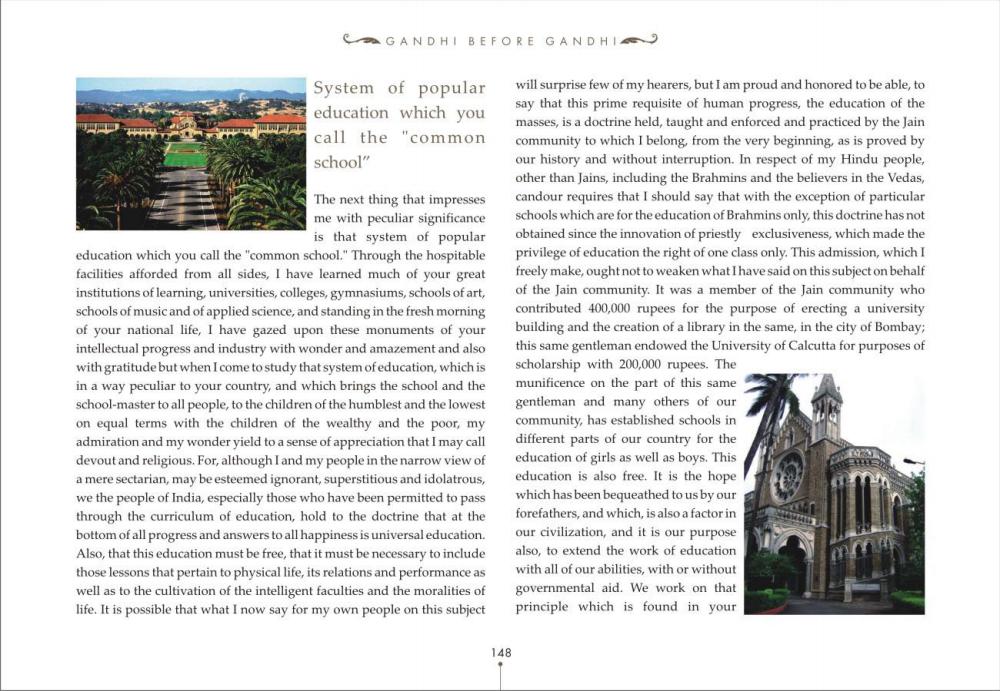________________
GANDHI BEFORE GANDHI
System of popular education which you call the "common school"
The next thing that impresses me with peculiar significance
is that system of popular education which you call the common school." Through the hospitable facilities afforded from all sides, I have learned much of your great institutions of learning, universities, colleges, gymnasiums, schools of art, schools of music and of applied science, and standing in the fresh morning of your national life, I have gazed upon these monuments of your intellectual progress and industry with wonder and amazement and also with gratitude but when I come to study that system of education, which is in a way peculiar to your country, and which brings the school and the school master to all people, to the children of the humblest and the lowest on equal terms with the children of the wealthy and the poor, my
will surprise few of my hearers, but I am proud and honored to be able to say that this prime requisite of human progress, the education of the masses, is a doctrine held, taught and enforced and practiced by the Jain community to which I belong, from the very beginning, as is proved by our history and without interruption. In respect of my Hindu people, other than Jains, including the Brahmins and the believers in the Vedas, candour requires that I should say that with the exception of particular schools which are for the education of Brahmins only, this doctrine has not obtained since the innovation of priestly exclusiveness, which made the privilege of education the right of one class only. This admission, which I freely make, ought not to weaken what I have said on this subject on behalf of the Jain community. It was a member of the Jain community who contributed 400,000 rupees for the purpose of erecting a university building and the creation of a library in the same, in the city of Bombay this same gentleman endowed the University of Calcutta for purposes of scholarship with 200,000 rupees. The munificence on the part of this same gentleman and many others of our community, has established schools in different parts of our country for the education of girls as well as boys. This education is also free. It is the hope which has been bequeathed to us by our forefathers, and which is also a factor in our civilization, and it is our purpose also, to extend the work of education with all of our abilities, with or without governmental aid. We work on that principle which is found in your
devout and religious. For, although I and my people in the narrow view of a mere sectarian, may be esteemed ignorant, superstitious and idolatrous, we the people of India, especially those who have been permitted to pass through the curriculum of education, hold to the doctrine that at the bottom of all progress and answers to all happiness is universal education. Also, that this education must be free, that it must be necessary to include those lessons that pertain to physical life, its relations and performance as well as to the cultivation of the intelligent faculties and the moralities of life. It is possible that what I now say for my own people on this subject
148




